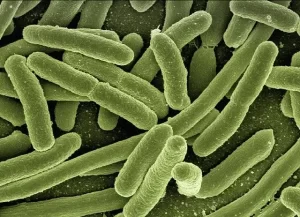Genetic testing is the key to successful immunotherapy
Genetic testing is the key to successful immunotherapy
Genetic testing is the key to successful immunotherapy. The success of immunotherapy has brought new hope to cancer treatment.
The success of immunotherapy has brought new hope to cancer treatment. However, this kind of revolutionary therapy can only “work” in some patients. Why is it effective only for some patients? How to find effective reasons for these patients is a problem that scientists are actively solving. Some people will say that in order to screen more suitable patients for targeted therapy, a genetic test is needed. Can immunotherapy also be a genetic test?
What is genetic testing?
Human genes contain all the genetic code of the human body, and genetic testing can decipher many of your puzzling life problems. Genetic testing is a laboratory biological testing technology that can detect DNA through blood, saliva, other body fluids, or cells. The purpose of genetic testing is to discover defective genes in genetic genes and to intervene in defective expression as early as possible so that diseases do not occur or occur later.

Immunotherapy is a cancer treatment that activates the body’s natural defenses to fight cancer. Although immunotherapy has made breakthrough progress, it does not have the ideal effect in all patients. Therefore, everyone is very concerned about the biomarkers that patients have a good response to immune checkpoint inhibitors.
The biomarkers of immunotherapy include PD-L1, TMB, MSI-H/dMMR. Among them, the expression level of PD-L1 is positively correlated with the efficacy, which can substantially improve the overall survival of patients. Studies have also found that patients with high TMB or MSI-H/dMMR have a higher effective rate of PD-1 inhibitors and a longer survival period, making them more suitable for treatment with PD-1 inhibitors.
1. PD-L1
The gold standard for PD-L1 expression detection is immunohistochemistry, but if the patient does not have a tissue sample, it can also be screened by genetic testing.
2. TMB
TMB, the full name is “tumor gene mutation burden”. TMB can be widely understood as the number of gene mutations. The more mutated genes in tumor tissues, the more likely it is to produce more abnormal proteins, thereby activating the human body’s anti-cancer immune response, so the more effective it is for tumor immunotherapy. Great. TMB must use a large panel of next-generation sequencing to perform analysis.
3. MSI/MMR
MSI means microsatellite instability, and MMR means gene mismatch repair function. MSI is divided into high instability (MSI-H), low instability (MSI-L) and stable (MS-S); MMR is divided into defective mismatch repair function (dMMR) and complete mismatch repair function (pMMR). MSI-H/dMMR solid tumors usually have immunogenicity and extensive T cell infiltration, and thus have a higher response to the treatment of immune checkpoint inhibitors.
If the patient carries JAK1, JAK2, BM2, HLA, STK11 and other gene mutations, they may be resistant to PD-1 inhibitors; if the patient has EGFR mutations and MDM2 amplification, outbreaks may occur after treatment with PD-1 inhibitors . Therefore, it is recommended that patients be tested in advance before PD-1 inhibitor treatment.
(source:internet, reference only)
Disclaimer of medicaltrend.org



